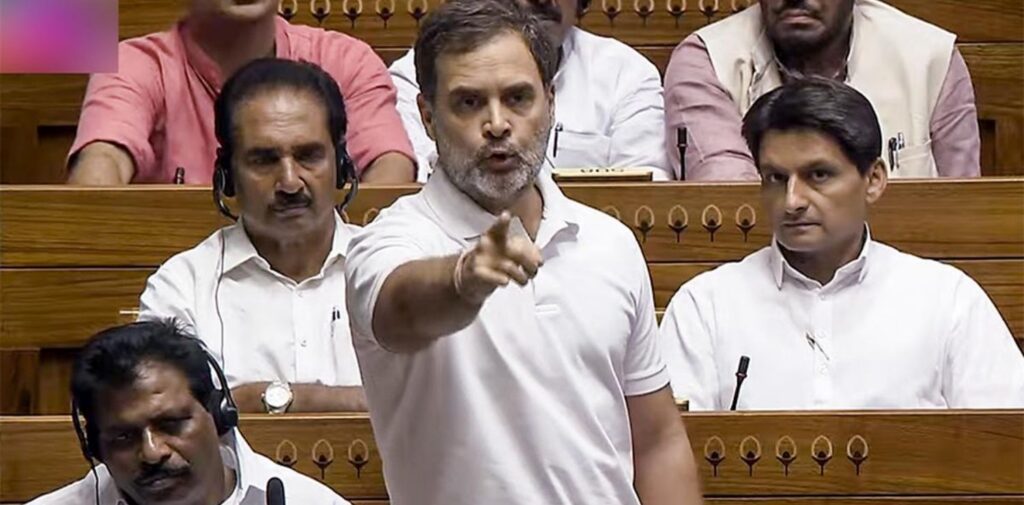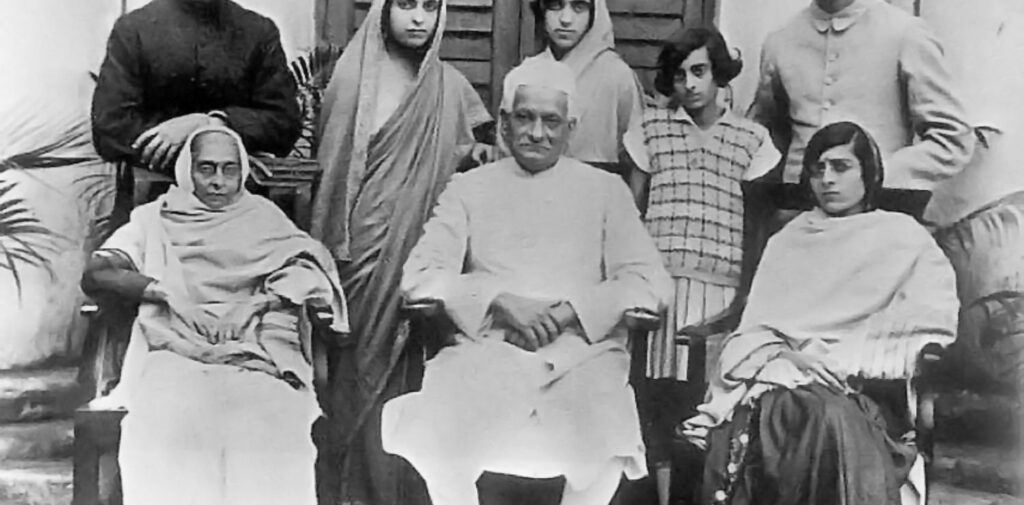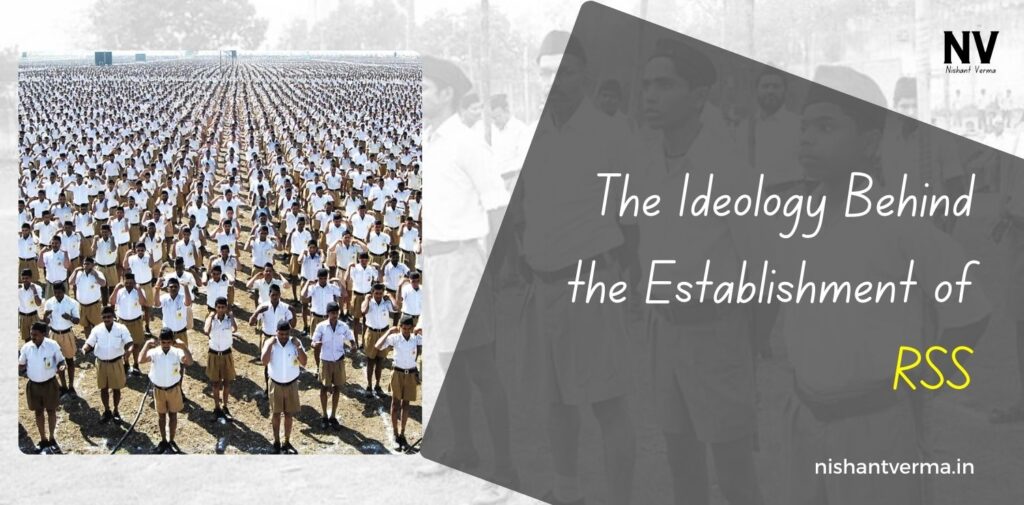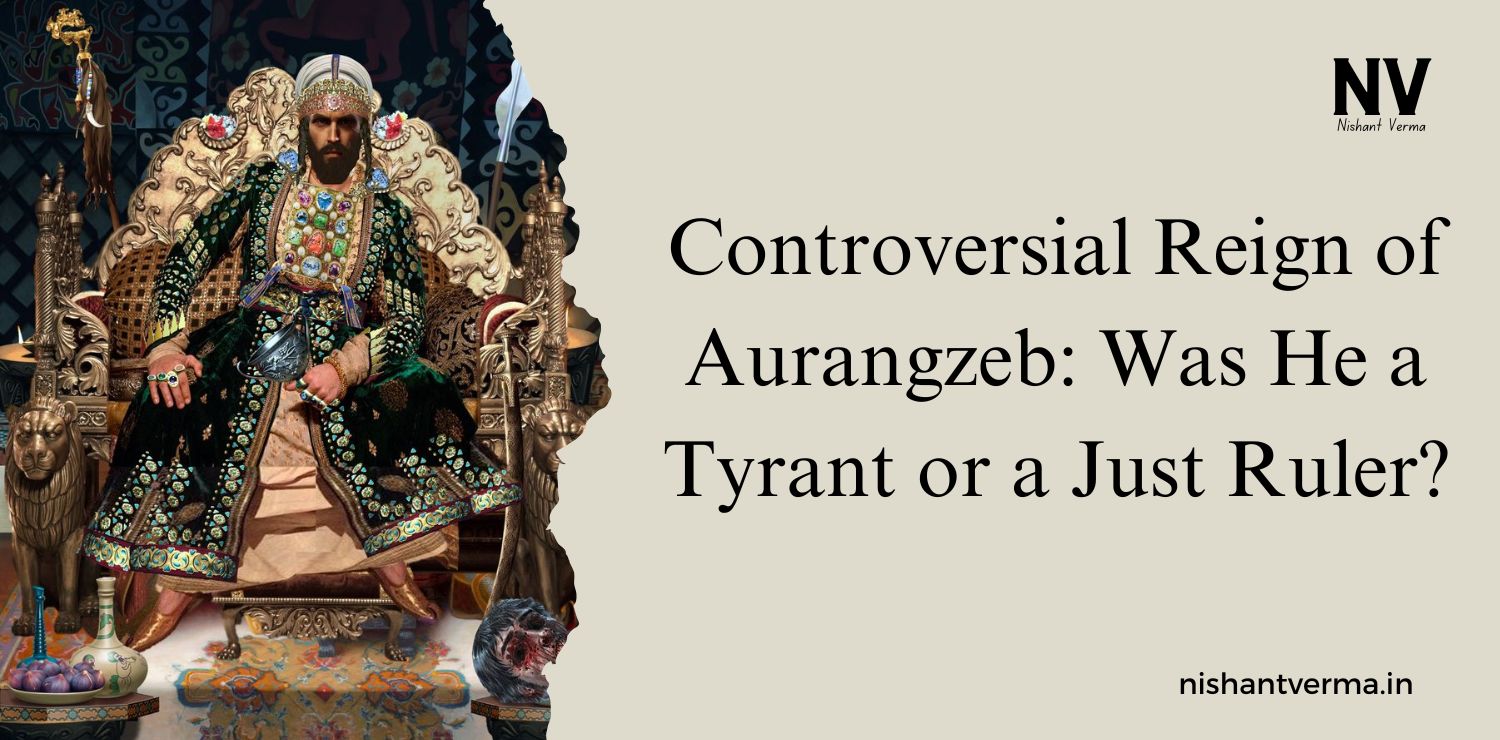Who Established the RSS and Why?
Establishment of RSS Rashtriya Swayamsevak Sangh (RSS) was established on September 27, 1925, by Dr. Keshav Baliram Hedgewar in Nagpur, India. Dr. Hedgewar, a freedom fighter and a prominent figure in the Indian independence movement, was deeply disturbed by the Hindu community’s social and political plight under British colonial rule and by the dominance of other communities over Hindus. He believed that Hindus lacked unity, discipline, and a sense of purpose, which made them vulnerable and politically powerless. To counter this, he sought to create an organization that would awaken the Hindu society and instill a spirit of unity, discipline, and pride in their cultural heritage.
The RSS was established with the vision of building a strong and unified Hindu society that would not only protect its interests but also work for the betterment of the nation as a whole. The organization’s core ideology was based on the concept of “Hindutva”,a term that signifies cultural nationalism rooted in the values and traditions of the Hindu civilization. The RSS aimed to organize and unite Hindus, promote social service, and imbibe a sense of selflessness and patriotism among its members.
The Reason and Motto of Establishment
The primary reason behind the establishment of RSS was to strengthen the Hindu society, which was perceived as weak, fragmented, and lacking political and social influence during the early 20th century. The founder, Dr. Hedgewar, was concerned about the rising communal tensions between Hindus and Muslims and believed that the Congress Party’s appeasement policies were responsible for creating a rift between the two communities.
The motto of RSS is “Sanghathan Mein Shakti Hai” (Strength Lies in Organization). Its goal was to achieve a unified and strong nation by organizing the Hindu community, developing a spirit of volunteerism, and fostering cultural pride and national unity. The organization emphasized discipline, character building, and dedication to the nation.

RSS vs. Congress: Different Ideologies and Approaches
The Indian National Congress, led by leaders like Mahatma Gandhi and Jawaharlal Nehru, positioned itself as the leading force in the freedom struggle against British rule. However, their approach to Hindu-Muslim unity often led to accusations of appeasement of Muslims. This led to growing discontent within the Hindu community, which felt that their interests were being sidelined.
While the Congress leadership preached secularism and claimed to represent all religious communities, critics argue that they ignored the legitimate concerns of Hindus. For instance, Mahatma Gandhi’s insistence on retaining the Khilafat Movement, which was aimed at supporting the Ottoman Caliphate, alienated many Hindus who did not see its relevance to India’s freedom struggle.
Similarly, Jawaharlal Nehru, who was the first Prime Minister of independent India, was often seen as overly sympathetic towards Muslims. His policies, such as the controversial Article 370 in Kashmir, which granted special status to the state, were perceived as anti-Hindu and pro-Muslim. Nehru’s approach, combined with Gandhi’s pacifist stance, led to the belief that the Congress leadership was not genuinely concerned about Hindu interests and was more focused on winning the support of Muslims to maintain political power.
The Congress’s Anti-Hindu Policies
Critics argue that the Congress’s policies have often been detrimental to Hindu interests. Here are a few examples that highlight this belief:
- Partition of India: The Congress, under the leadership of Nehru and Gandhi, accepted the partition of India based on religious lines, leading to the creation of Pakistan. This decision led to massive violence, displacement, and loss of life, primarily affecting the Hindu community in regions that became Pakistan.
- Support for Separate Electorates: Congress’s support for separate electorates for Muslims, initiated during the British Raj, was seen as a divisive policy that reinforced religious identities and weakened the Hindu community’s political standing.
- Appeasement of Muslim Leaders: Both Gandhi and Nehru were accused of appeasing Muslim leaders like Muhammad Ali Jinnah, which ultimately led to the demand for a separate nation for Muslims. Critics argue that this appeasement emboldened the demands for partition, which caused irrevocable harm to the Hindu community.

BJP’s Support to Establishment of RSS
In contrast, the Bharatiya Janata Party (BJP), which is closely linked with the RSS, has always been vocal about representing Hindu interests. The BJP’s rise in Indian politics can be attributed to its support for the RSS ideology of Hindutva and its promise to uphold Hindu values and protect the community’s interests.
The BJP, led by leaders like Atal Bihari Vajpayee and Narendra Modi, has promoted policies that are seen as pro-Hindu and aimed at correcting the wrongs of the past. Some of the key moves by the BJP that reflect RSS ideology include:
- Revocation of Article 370: The abrogation of Article 370, which granted special status to Jammu and Kashmir, was a long-standing demand of the RSS and BJP. The move was hailed by the Hindu community as a step towards national integration and the assertion of India’s sovereignty.
- Citizenship Amendment Act (CAA): The CAA, which grants citizenship to persecuted non-Muslim minorities from neighboring countries, is seen as a reflection of the RSS’s commitment to protect Hindus and other communities that have faced religious persecution.
- Ram Janmabhoomi Movement: The movement to build a Ram Temple at Ayodhya, spearheaded by the RSS and supported by the BJP, was seen as a symbolic assertion of Hindu pride and cultural heritage.
- Uniform Civil Code (UCC): The demand for a Uniform Civil Code, which would apply the same set of laws to all citizens regardless of religion, is another long-standing issue championed by the RSS and BJP. The implementation of UCC is viewed as essential for national unity and the removal of legal discrimination against Hindus.
The Nehru-Gandhi Family and Accusations of Anti-Hindu Stance
The Congress leadership, particularly the Nehru-Gandhi family, has often faced allegations of being anti-Hindu. Critics point to several instances to support this claim:
- Nehru’s Refusal to Support the Hindu Code Bill: Although Nehru passed the Hindu Code Bill, he did not push for similar reforms in Muslim personal law. This was seen as discriminatory and reflective of his unwillingness to apply the same standards to all communities.
- Indira Gandhi’s Emergency Rule: During Indira Gandhi’s Emergency rule from 1975-1977, several Hindu organizations, including the RSS, were banned, and their leaders were arrested. This action further strained relations between the Congress and the Hindu community.
- Rajiv Gandhi’s Shah Bano Case: In 1986, Rajiv Gandhi’s government overturned a Supreme Court verdict in the Shah Bano case, which granted alimony to a divorced Muslim woman. The Congress’s move to appease conservative Muslim clerics was seen as a betrayal of Hindu women’s rights and secular values.

RSS’s Contribution to Nation Building
Despite the criticisms, the RSS has played a significant role in nation-building and social work. Over the years, the organization has set up numerous educational institutions, hospitals, and relief camps during natural disasters. The Sangh’s “Seva Bharati” initiative has provided aid to thousands of underprivileged families, irrespective of their religion, and contributed to rural development.
RSS has also launched several initiatives to promote social harmony and eliminate caste-based discrimination within the Hindu community. The organization’s outreach programs aim to create a sense of national identity that transcends regional, linguistic, and caste divisions.
The Path Forward
The debate between Congress and RSS is a reflection of the ideological clash that has defined Indian politics for decades. While the Congress claims to represent secularism and inclusive politics, the RSS and its affiliated organizations argue that they are merely striving to restore Hindu pride and protect the community’s interests in a country where they feel marginalized.
In conclusion, the RSS was established to protect and promote Hindu interests, which its founders felt were under threat from both British colonial policies and the Congress Party’s appeasement politics. While it has faced significant criticism, especially from the Congress, for being divisive, the organization has continued to grow and gain support, particularly through its association with the BJP. As Indian politics evolves, the RSS remains a powerful force that influences the nation’s socio-political landscape.




